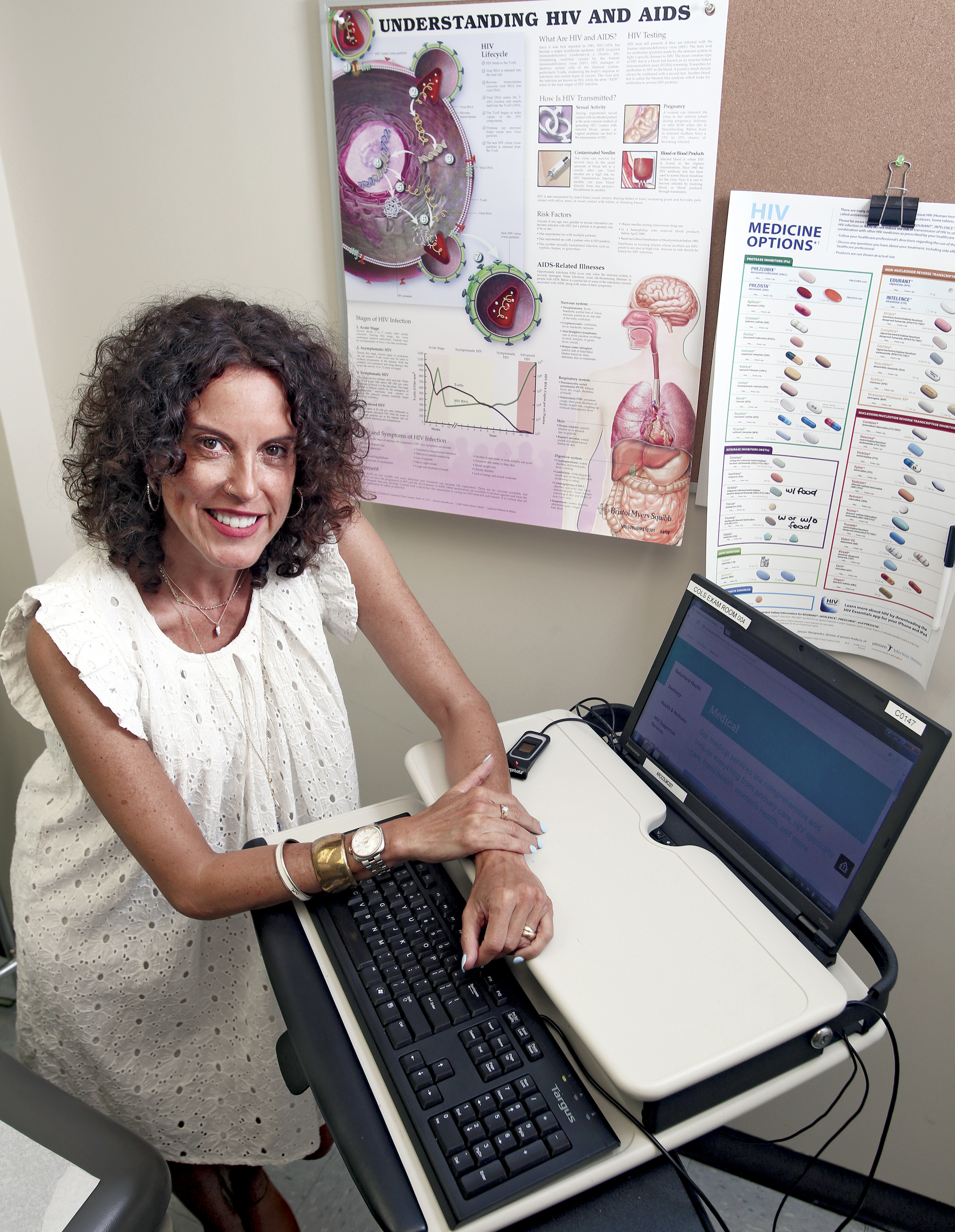Mimi Rivard
Mimi Rivard became a nurse when she was 20 years old. It was at the height of the AIDS epidemic. Her entry into the health care industry was marked by sadness and loss, as individuals struggled not only with illness, but with community rejection and marginalization.
"It was an incredibly challenging time," she said.
Rivard, 51, sees parallels today in the trans community she serves in her role at Equitas Health. Both groups, she said, exhibit a strength, resourcefulness and a sense of community.
Rivard, a native of Waterbury, Connecticut, became a registered nurse in 1988 and a nurse practitioner in 1992. She has worked at Equitas since 2013, and provides medical care for those who desire medical transition. She helps patients with primary care, HIV care, hormone therapy and preventative therapy.
She said the medical care she provides helps people feel seen and recognized and helps them engage in health care in a way they hadn't had access to previously. Rivard said she's worked with members of the trans community through her HIV care over the last 30 years, but it has only been within the last two years that she has begun to focus on transition therapy.
"I feel like it's been a real gift," she said.
Now in her sixth decade, Rivard said she feels like she's experiencing somewhat of a second act in her life, one that makes her reflect on her time taking care of those with HIV and AIDS in the early years of her career. Those in the trans community face a similar sort of discrimination, she said.
"They're coming in carrying a lot of burden and a lot of suffering," she said, adding that they also face a tremendous amount of discrimination from the medical community.
Rivard has been one of the most supportive, empowering individuals in her field of medicine, encouraging her clients to reach their potential, said Mikayla Robinson.
Robinson, a Columbus resident, has known Rivard for nearly 10 years through her work with the Equitas program Mozaic, which targets youth ages 13 to 29 who are people of color identifying as transgender, gender non-conforming and gender non-binary.
"She has been one of the best helping hands that we have had within the community," Robinson said of Rivard.
In addition to their roles together at Equitas, Robinson said Rivard is also her personal health-care advocate and has helped give her the courage to begin working within the trans community as well, Robinson said.
Melissa Alexander, co-chair of TransOhio, said Rivard gives members of the community a great deal of respect and dignity. Alexander said she has known Rivard for a few years, first meeting her through their respective roles at TransOhio and Equitas. Rivard has delivered several presentations for TransOhio during its annual three-day symposium, including tips for health care providers about the proper way to run a health care practice for those identifying as trans or gender non-conforming. She’s also given presentations to members of the trans community about expectations for health care, and is the health care provider to Alexander’s partner, Paula.
"She's a really good person," Alexander said of Rivard. "I think she's just wonderful. I wish we had more of her."
Rivard is modest about the praise she's received. She said she has mixed feelings about the work she does being characterized as heroic, she said, because the Hippocratic Oath says to do no harm. Members of the trans community, she said, shouldn't have to visit a special clinic with rainbow flags.
The real heroes, she said, are members of the trans community who persevere despite incredible disenfranchisement and abuse.
"I'm not the hero, I'm just a worker bee," Rivard said.
